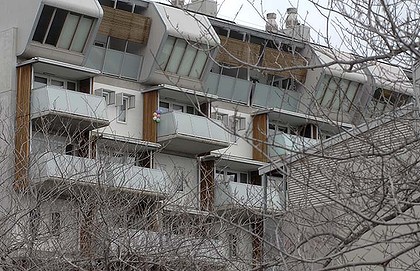May 7, 2012
PUBLIC housing may be financed by securities, bonds or private public partnerships under a radical overhaul being considered by the state.
Victoria’s $17.8 billion public housing portfolio is falling deeper into operational debt and will have exhausted all its cash reserves by the end of this year.
In response, the state government has released a KPMG discussion paper and kicked off a three month consultation process before deciding on major reforms.
While Victoria’s public housing operating costs were far in excess of revenue, the system was also hamstrung by a large maintenance liability, the KPMG paper said.
”Forty-two per cent of Victoria’s public housing stock is more than 30 years old and in need of repair or replacement,” it stated.
And it was suffering a mismatch between demand and supply. In March there were 37,887 people on the waiting list for public housing. Of those, 20,000 were waiting for a one-bedroom dwelling but there were only 17,500 available, the paper said.
”There is a clear current need for significant measures in order to address the long-term sustainability of this vital public service,” the paper said.
The paper suggests six models for improvement:
■ Contracting private developers to construct, finance and maintain social housing.
■ Financial partnerships with the community housing sector.
■ Transferring legal titles of housing from state to community organisations.
■ Shared equity or ownership schemes for public tenants.
■ Securitising against future rent income to finance housing developments.
■ Providing loan guarantees to reduce risk and encourage bank finance.
■ Bond issues to private investors for social housing dwellings.
Australians for Affordable Housing campaign manager Sarah Toohey said the proposals were ”radical” but lacked detail.
”Most of them are pretty complex financial and contracting arrangements. They’re going to need some pretty dedicated investment and attention from government to get them off the ground,” Ms Toohey said.
”But we do need to do something radically different because we’ve run the system into the ground.”
The KPMG paper cites examples in Finland where social housing was financed by interest subsidised commercial loans or securitised state loans.
In Austria, tax incentives allow banks to issue low-risk bonds to small investors to stimulate development of social housing projects, it said.
”For every one euro of foregone tax, 19 euro of investment has been committed to affordable housing production.”
The recent redevelopment of the 939-dwelling Kensington housing estate was a potential community housing development model, it said. Kensington’s $150 million nine-year long overhaul increased the number of units by 89 but split the entire estate roughly in half between private and public homes. Despite its focus on social housing, the Baillieu government has reduced funding for housing assistance by $6.3 million in this week’s budget.
Source: The Sidney Morning Herald


Leave a Reply